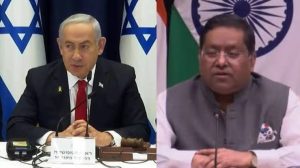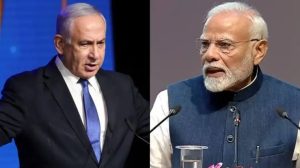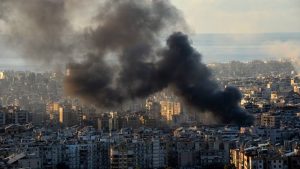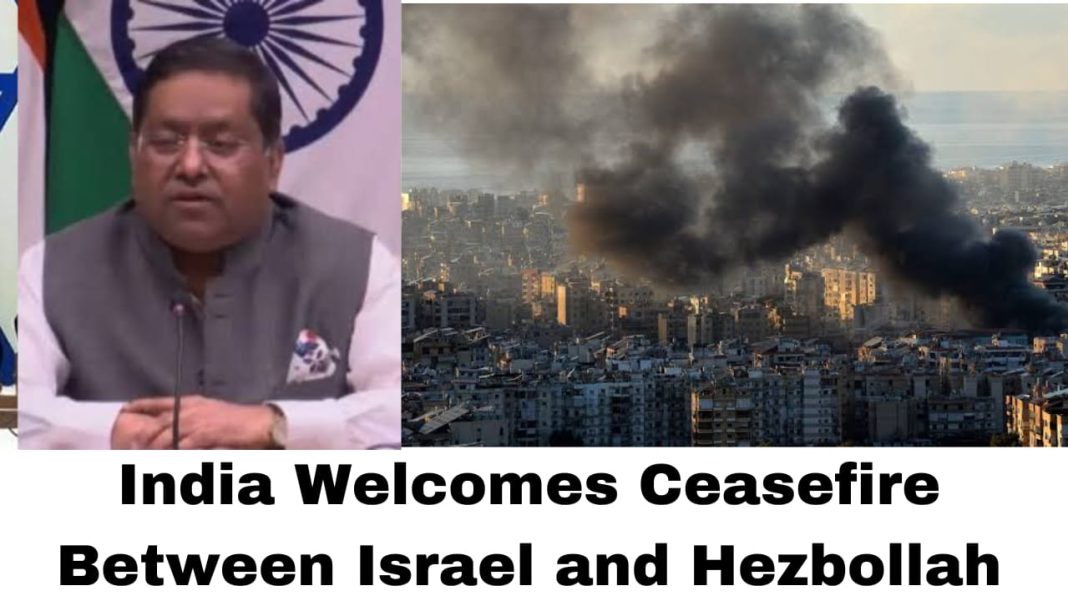Digital News Guru:
On November 26, 2024, India expressed strong support for the recently brokered ceasefire between Israel and Hezbollah, marking a significant step toward easing tensions in the volatile West Asia region. The ceasefire, negotiated with the assistance of the United States and France, follows months of escalating conflict and civilian casualties. India’s Ministry of External Affairs (MEA) issued a statement welcoming the truce, reaffirming the nation’s stance on peaceful resolution through dialogue and diplomacy.
Context of the Conflict
The agreement addresses a long-standing conflict that flared up after targeted killings of Hezbollah leaders by Israeli forces. Over 3,760 deaths were reported in Lebanon due to Israeli airstrikes during the past 13 months, according to Lebanese health officials. This has led to widespread destruction, displacement, and growing international concern over the humanitarian crisis in the region.

The truce outlines a mutual de-escalation, including a pullback of military forces from southern Lebanon, though it excludes the ongoing Israeli-Palestinian conflict in Gaza. Israeli Prime Minister Benjamin Netanyahu emphasized that Israel retains its right to enforce the terms of the ceasefire should Hezbollah violate any agreements.
India’s Position and Response
India has consistently advocated for peaceful solutions to conflicts, emphasizing dialogue and diplomacy as tools for lasting peace. The MEA’s statement commended the ceasefire as a “critical step toward de-escalation” and reiterated India’s call for restraint from all parties involved.
India’s strategic interest in West Asia extends beyond its stance on peace. The region is vital for India’s energy security, with a significant portion of its crude oil imports sourced from Gulf countries. Additionally, the region hosts millions of Indian expatriates whose safety and welfare remain a top priority for New Delhi.

Protecting Indian Nationals
Amid escalating tensions earlier this year, India issued advisories for its citizens in Israel, ensuring their safety during the conflict. An estimated 20,000–30,000 Indian nationals live and work in Israel. The Indian embassy in Tel Aviv has maintained direct communication with the diaspora, providing updates and support as needed. This proactive engagement highlights India’s broader responsibility to safeguard its people while addressing international crises.
The Ceasefire Agreement: Terms and Challenges
The 60-day truce is aimed at halting hostilities, creating a window for potential long-term negotiations. However, both Israel and Hezbollah have reserved the right to resume defensive actions if the agreement is breached. The United States and France played instrumental roles in brokering this deal, leveraging their diplomatic influence to prevent further escalation.
Key aspects of the ceasefire include:
- Withdrawal of Troops: Both sides have agreed to pull back forces from the southern Lebanese border.
- Monitoring Mechanisms: International monitors may be deployed to ensure compliance.
- Exclusion of Gaza Conflict: The agreement does not address the parallel conflict between Israel and Hamas in Gaza, which continues to draw global attention.
Broader Implications for Regional Stability
The ceasefire is seen as a positive development for the region, but its success hinges on sustained adherence by both parties. The broader geopolitical stakes include Iran’s influence on Hezbollah and the complex dynamics between Gulf states and Israel. For India, peace in West Asia directly impacts its economic ties and the safety of its expatriates.
India’s Role in West Asia
India has historically maintained a balanced approach to West Asian conflicts, advocating for peace without taking sides. This neutrality allows India to strengthen bilateral relations with diverse nations in the region, including Israel and Lebanon. India’s response to the ceasefire underscores its commitment to multilateralism and its role as a responsible global actor.

Challenges Ahead
Despite the initial optimism, the ceasefire faces significant challenges:
- Trust Deficit: Deep-rooted mistrust between Israel and Hezbollah could hinder long-term peace efforts.
- Proxy Influences: Iran’s backing of Hezbollah and the role of external actors complicate the situation.
- Humanitarian Crisis: Addressing the immediate needs of displaced populations and rebuilding destroyed infrastructure in Lebanon will require substantial international aid.
India’s Diplomatic Balancing Act
India’s support for the ceasefire aligns with its broader diplomatic strategy in West Asia, emphasizing stability and cooperation. Over the years, India has cultivated strong ties with Israel, including defense collaborations, while maintaining its historic goodwill with Arab nations and Iran. This dual approach enables India to act as a bridge-builder in the region.
Conclusion
The ceasefire agreement between Israel and Hezbollah is a significant milestone in reducing tensions in West Asia. India’s support for the truce reflects its commitment to global peace and its vested interests in the region. However, the path to lasting stability remains fraught with challenges, requiring sustained international engagement and the active involvement of all stakeholders.
India’s measured response and proactive efforts to protect its nationals further demonstrate its pragmatic approach to navigating complex geopolitical landscapes. As the ceasefire holds, the international community, including India, must remain vigilant and prepared to mediate should hostilities resurface.
You May Also Read: The Lotus Temple: Architectural Wonder and Spiritual Haven








